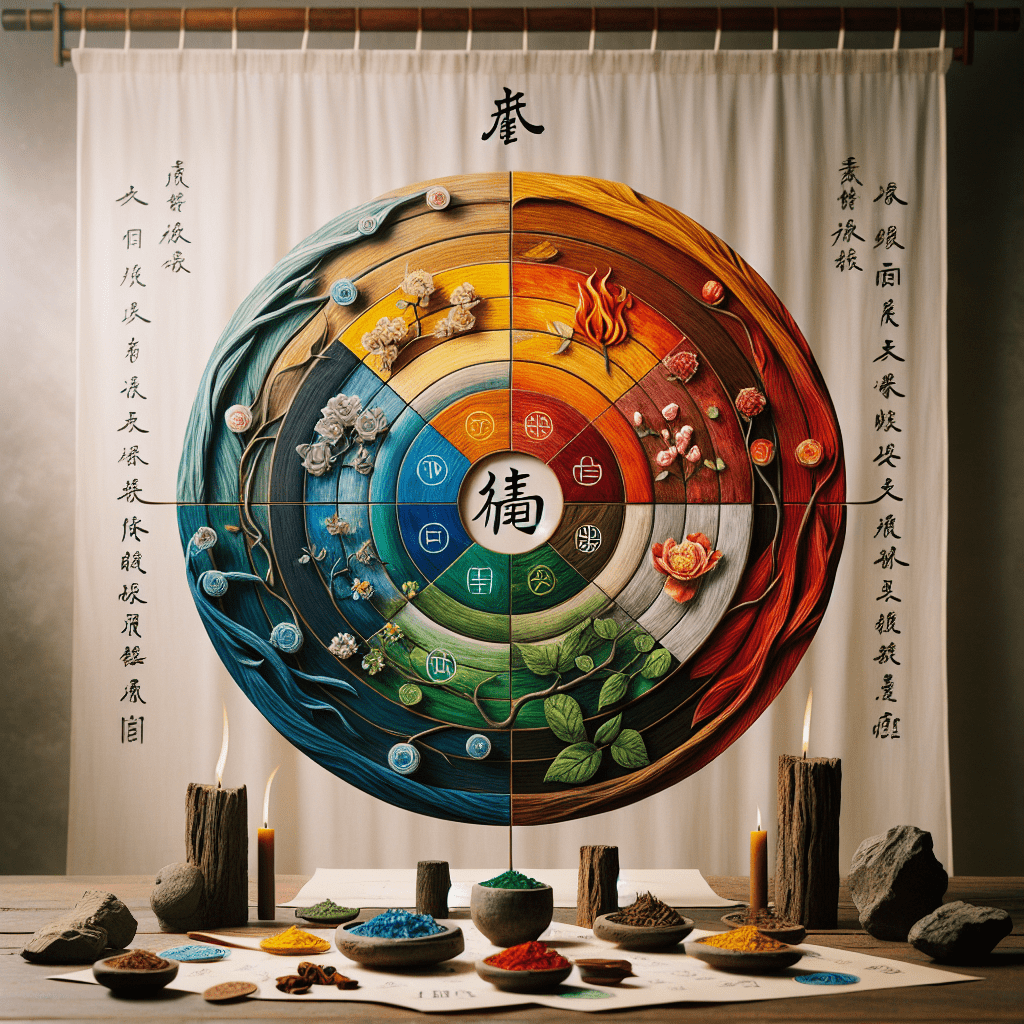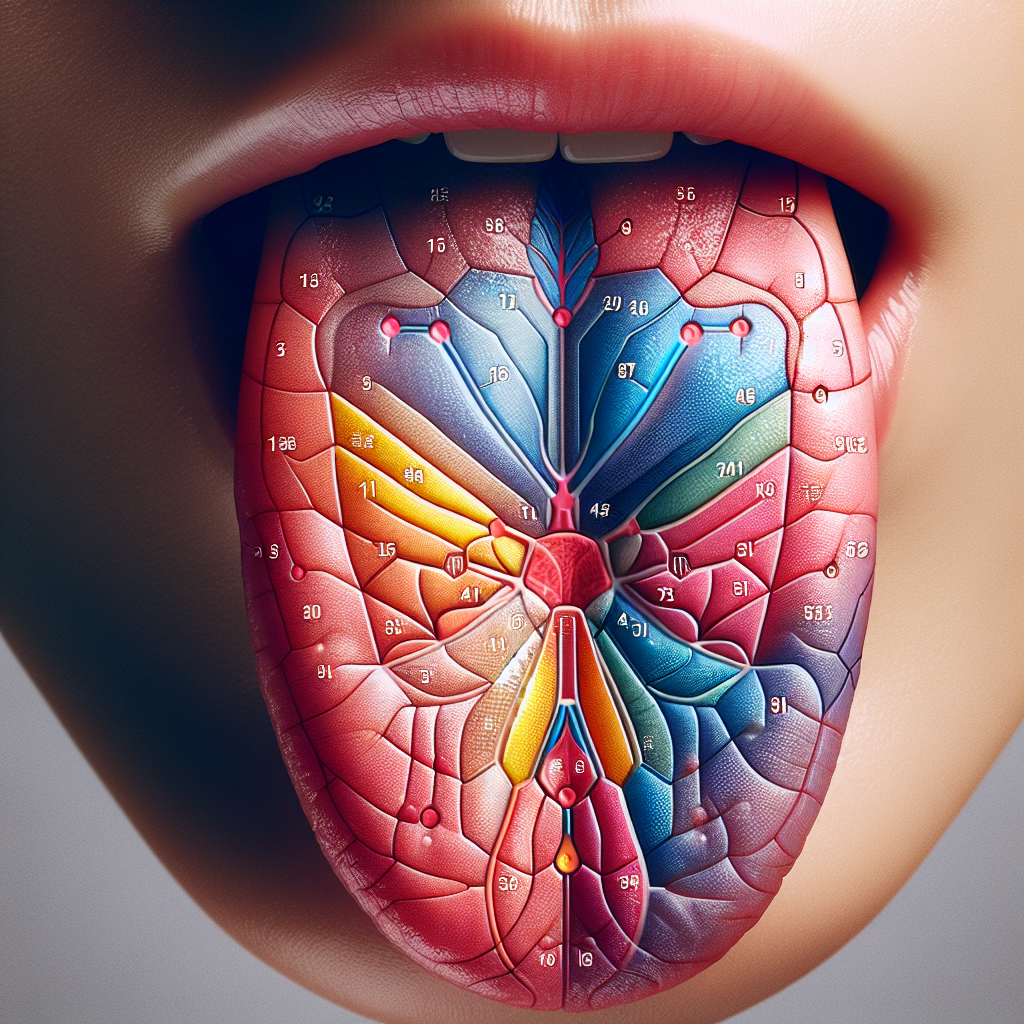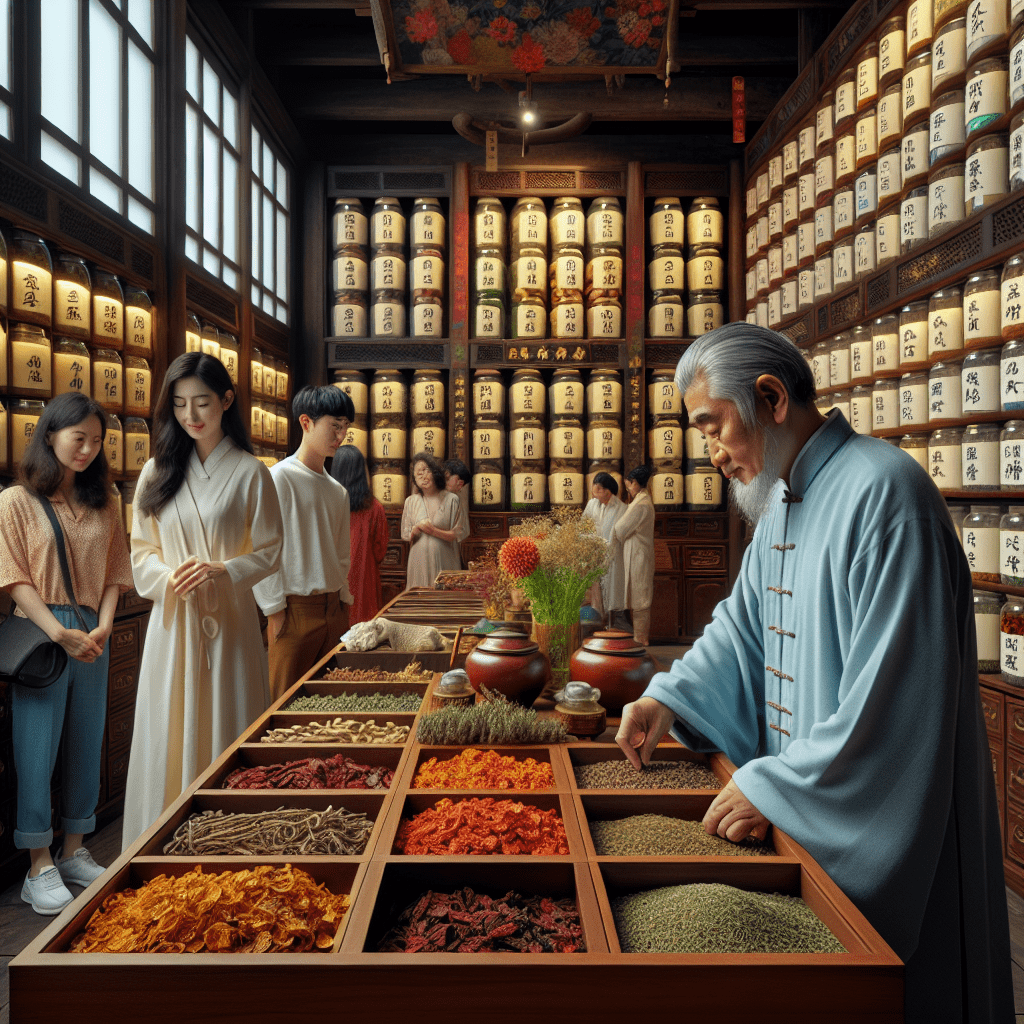Living with eczema can feel like a never-ending battle against your own skin. The persistent itching, redness, and inflammation can disrupt sleep, affect confidence, and impact overall quality of life. If you’re among the millions struggling with this common skin condition, you might be tired of temporary fixes and looking for something more holistic and lasting.
That’s where Traditional Chinese Medicine (TCM) comes in – an ancient healing system that’s been addressing skin conditions like eczema for thousands of years. Unlike conventional treatments that often focus solely on suppressing symptoms, TCM takes a whole-body approach, seeking to identify and treat the root causes of your eczema.
What makes Traditional Chinese Medicine eczema treatments particularly appealing today is their alignment with modern desires for natural, sustainable wellness solutions. As more people become concerned about the long-term effects of steroid creams and other conventional treatments, TCM offers a gentle alternative that works with your body rather than against it.
Understanding Eczema Through Eastern Eyes
When a TCM practitioner looks at your eczema, they don’t just see a skin problem – they see valuable clues about what’s happening inside your body. According to Traditional Chinese Medicine, eczema is not merely a surface issue but a manifestation of internal imbalances.
These imbalances typically fall into three main categories:
Internal Heat: In TCM philosophy, excessive heat in the body can rise to the skin’s surface, causing the red, inflamed patches characteristic of many eczema cases. This heat might result from emotional stress, certain foods, or other factors disrupting your body’s natural balance.
Dampness: TCM recognizes that too much internal moisture or “dampness” can contribute to weeping, oozing eczema lesions. This dampness often relates to digestive function and can be influenced by diet and lifestyle.
Deficiency: Sometimes, eczema stems from what TCM calls “blood deficiency” or “yin deficiency,” where the skin isn’t receiving proper nourishment, resulting in dry, flaky, itchy patches.
Rather than applying a one-size-fits-all approach, Traditional Chinese Medicine eczema treatment aims to restore harmony by addressing your specific pattern of imbalance. This might involve a combination of herbal formulas, dietary changes, and lifestyle adjustments tailored to your unique condition.
“In TCM, we don’t treat the disease; we treat the person,” explains many TCM practitioners. “Two people with eczema might receive completely different treatments because their underlying imbalances are different.”
Nature’s Pharmacy: Herbal Remedies for Skin Relief
At the heart of Traditional Chinese Medicine eczema treatment are herbal formulas that have been refined through centuries of clinical observation and use. These aren’t random plant mixtures but carefully crafted combinations designed to address specific patterns of imbalance.
For Heat-Type Eczema: When eczema presents with bright red skin, intense itching, and possibly a burning sensation, cooling herbs are typically prescribed. Lian Qiao (Forsythia fruit) and Zhi Mu (Anemarrhena rhizome) help clear heat and reduce inflammation. Chinese skullcap (Huang Qin) is another powerful cooling herb that detoxifies and calms angry, inflamed skin.
For Damp-Type Eczema: When eczema weeps or oozes, herbs that resolve dampness come into play. Ku Shen (Sophora root) is renowned for its ability to dry dampness while also reducing itching. It’s often combined with Fu Ling (Poria) to strengthen the spleen and improve its function in removing excess moisture from the body.
For Blood Nourishment: Dang Gui (Angelica sinensis) and He Shou Wu (Polygonum multiflorum) help nourish the blood, which in TCM is essential for healthy skin. These herbs are particularly useful for dry, flaky eczema associated with blood deficiency.
For Immune Support: Huang Qi (Astragalus) strengthens what TCM calls “defensive qi” – similar to what we understand as immune function. This helps the body maintain healthy skin barriers and resist external irritants.
These herbs can be prepared in various ways:
- Internal decoctions (teas) that address the root imbalances
- Topical washes that provide direct relief to irritated skin
- Creams and ointments that combine herbs with soothing bases
- Herbal baths that allow whole-body treatment
One notable formula often used for eczema is a mixture containing Japanese honeysuckle (Jin Yin Hua), peppermint (Bo He), root bark of tree peony (Mu Dan Pi), and underground stem of the Solomon’s seal (Huang Jing). Clinical studies have shown this combination can significantly reduce eczema severity with fewer side effects than conventional treatments.
Healing From the Inside: The TCM Approach to Diet
In Traditional Chinese Medicine, eczema management extends beyond herbs to embrace the concept of “food as medicine.” Your diet isn’t just fuel—it’s a powerful tool that can either trigger inflammation or promote healing.
TCM dietary guidelines for eczema focus on avoiding foods that generate internal heat or dampness while embracing those that cool and nourish. Here’s what this might look like in practice:
Foods to Minimize:
- Dairy products: In TCM, dairy increases internal dampness and phlegm, which can aggravate eczema. Many eczema sufferers report improvement when eliminating milk, cheese, and other dairy foods.
- Spicy foods: Chili peppers, garlic, ginger in excess, and other hot spices can increase internal heat, potentially worsening red, inflamed eczema.
- Shellfish and seafood: Shrimp, crab, scallops, and oysters are considered “heating” foods that may trigger eczema flares.
- Greasy, fried foods: These burden the digestive system and contribute to dampness.
Foods to Embrace:
- Cooling fruits: Watermelon, cucumber, pear, and apple help clear heat without creating dampness.
- Mung beans: These small green beans are prized for their heat-clearing properties. Mung bean soup is a traditional remedy for summer heat and skin inflammations.
- Coix seed (Job’s tears): This grain helps resolve dampness and is often recommended in porridges for eczema sufferers.
- White vegetables: Radish, winter melon, and lotus root have cooling properties that help balance the body.
One particularly beneficial recipe is mung bean and coix seed soup, which research suggests can relieve erythema (redness) and itching in allergic dermatitis. Another healing option is yam and red date porridge, which nourishes the skin while helping to regulate immune function.
“The ideal breakfast for someone with eczema might be coix seed tea along with millet or corn porridge,” suggests TCM texts. “These foods nourish without creating excess heat or dampness.”
Always having breakfast is particularly emphasized in TCM dietary guidelines for skin health. This morning meal helps establish proper energy flow for the day and supports the body’s natural healing rhythms.
Beyond Skin Deep: Lifestyle Wisdom from TCM
Traditional Chinese Medicine eczema treatment recognizes that your skin’s health reflects your overall lifestyle. Several key aspects of daily living can significantly impact eczema symptoms:
Stress Management: Emotional stress is considered a major trigger for eczema flares in TCM. When emotions like frustration, anger, or anxiety run high, they generate internal heat that can manifest on the skin. Practices like tai chi, qigong, and meditation help cool this emotional heat and restore balance.
“In TCM, we say that anger makes qi rise, worry knots qi, and fear makes qi descend,” explains TCM theory. “Learning to manage these emotions helps prevent their physical manifestations.”
Sleep Optimization: Quality sleep is essential for skin healing. TCM recommends aligning with natural rhythms by sleeping from 11 PM to 7 AM when possible. During these hours, the body does much of its repair work, including skin regeneration.
Gentle Exercise: Regular, moderate movement helps circulate qi and blood, bringing nourishment to the skin. However, excessive exercise that produces too much heat or sweating may aggravate eczema. Walking, swimming in clean water, and gentle stretching are often recommended.
Proper Skincare: Traditional Chinese Medicine eczema care includes mindful approaches to bathing and moisturizing:
- Using lukewarm rather than hot water
- Keeping baths and showers brief to avoid drying the skin
- Applying moisturizers while skin is still slightly damp
- Using natural, fragrance-free products
Environmental Awareness: Being mindful of environmental triggers like pollen, dust, and chemical irritants helps prevent flares. TCM advises creating a clean, harmonious living space that supports healing.
These lifestyle modifications support the body’s natural healing mechanisms and enhance the effectiveness of herbal remedies and dietary changes. Together, they create a comprehensive approach to managing eczema that addresses both symptoms and causes.
Ancient Wisdom, Modern Validation
While Traditional Chinese Medicine eczema treatments have a history spanning thousands of years, modern research is increasingly validating their effectiveness. Several clinical studies have shown promising results for TCM approaches:
A review published in the Journal of Alternative and Complementary Medicine found that certain Chinese herbal formulas demonstrated significant improvement in eczema symptoms compared to placebo treatments.
Another study showed that Chinese herbal baths reduced eczema severity scores and improved quality of life measures with fewer side effects than conventional treatments. These baths allowed herbs to directly contact affected skin while avoiding the potential digestive side effects of oral medications.
Acupuncture, another pillar of TCM, has also shown promise for eczema relief. A systematic review of acupuncture studies for atopic dermatitis found that this ancient practice could help reduce itching, improve sleep quality, and decrease inflammation markers in the body.
What’s particularly exciting is that researchers are now identifying the specific compounds in traditional herbs that provide these benefits. Modern analysis has revealed anti-inflammatory, antimicrobial, and immune-modulating properties in many TCM herbs traditionally used for skin conditions.
This growing body of evidence doesn’t just validate traditional practices—it helps bridge Eastern and Western approaches to healing, potentially leading to more integrated and effective treatments for difficult skin conditions like eczema.
A Harmonious Path Forward
Traditional Chinese Medicine eczema treatment offers more than just relief from symptoms—it provides a pathway to deeper healing and understanding of your body. By addressing the root imbalances that manifest as eczema, TCM helps create sustainable improvements rather than temporary fixes.
This holistic approach aligns perfectly with HerbalsZen’s philosophy of merging ancient Eastern wisdom with modern advancements. Just as TCM looks at the whole person rather than just the skin condition, we believe in personalized wellness solutions that honor your unique constitution and needs.
If you’re tired of the cycle of flares and remissions, Traditional Chinese Medicine eczema treatments offer a gentle alternative worth exploring. Whether you’re dealing with red, inflamed patches, weeping lesions, or dry, flaky skin, TCM’s personalized approach means treatments can be tailored specifically to your condition.
While beginning any new health approach should include consultation with qualified healthcare providers, many people find that integrating TCM principles brings welcome relief and a deeper connection to their body’s natural healing abilities.
In a world where quick fixes often come with unwanted side effects, the time-tested wisdom of Traditional Chinese Medicine eczema care reminds us that true healing happens when we work with our bodies rather than against them. By restoring balance from within, you may find not just clearer skin, but greater overall wellness—a goal worth pursuing for anyone seeking natural, holistic health solutions.




